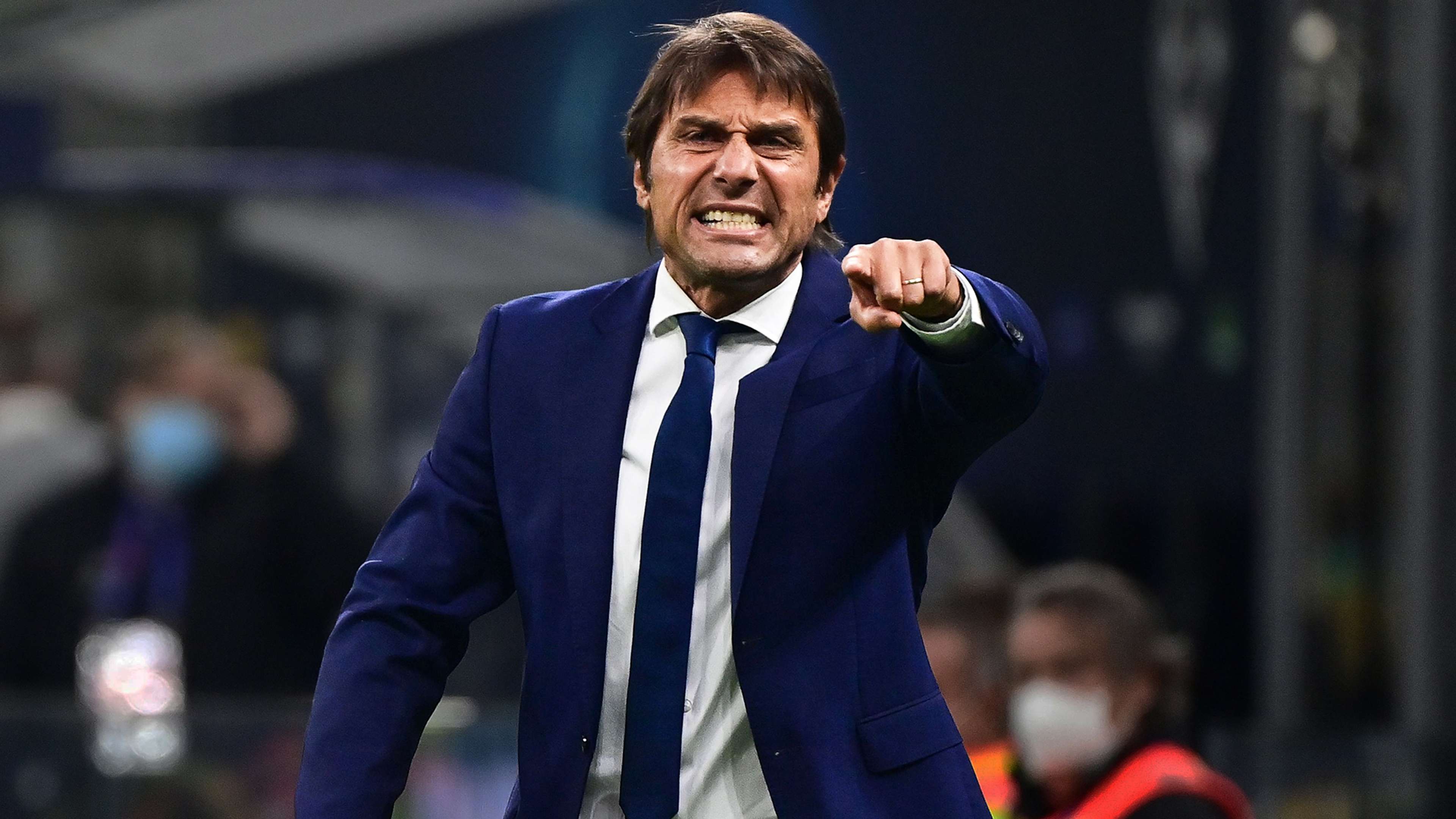Inter are Serie A champions, clinching the Scudetto with four games remaining.
And though they have made their title triumph look easy, it has been anything but.
The Nerazzurri have had to work incredibly hard to end Juventus' unprecedented run of nine consecutive Scudetti. Theirs is a victory for unity, discipline and endeavour.
More than that, though, it is a victory for Antonio Conte; vindication of his footballing philosophy and confirmation of his status as one of the finest coaches of the modern era.
The man who put Juve back on their perch, after Calciopoli, has knocked them off it in just his second season at San Siro.
Consequently, while Conte still has his critics, and some of the allegations levelled at him are valid, nobody can now dispute his greatness.
He is right when he says Inter was "the ultimate challenge" for him, "the most difficult choice" he could ever have made.
As a result, this might just be his finest achievement to date, given he has had to fight his corner right from day one...
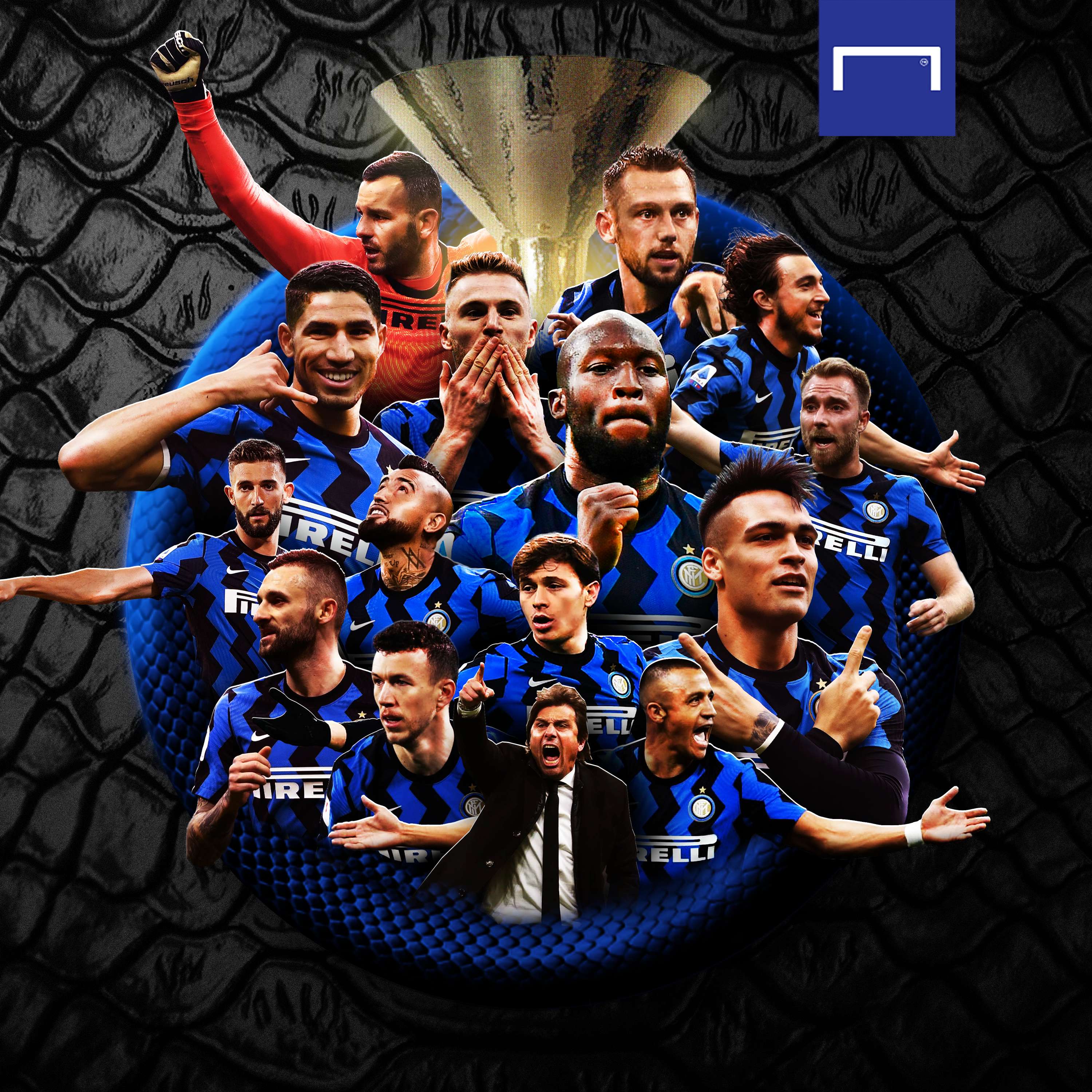 Goal
Goal
'Not for everyone'
Shortly after he was appointed as coach in May 2019, the club unveiled its new motto: 'Not for everyone'. It felt like an apt description of Conte's standing among Nerazzurri fans.
Many Interisti revel in their 'Pazza Inter' ('Crazy Inter') reputation. The team's propensity for spectacular self-destruction is wrapped up in a romanticised view of the club.
Essentially, to support Inter, is to suffer.
However, when club president Steven Zhang asked Conte if he was ready for 'Pazza Inter', the new boss replied: "No, enough craziness. It will be a regular and strong Inter."
The message was clear: he would be doing things his way – not 'the Inter way'.
Hardly surprising, then, that when it emerged that their beloved anthem 'Amala Pazza Inter' would no longer be played before home games, the fans blamed Conte.
It was, in reality, a club decision, part of Suning's modernisation of the club's brand, but the feeling remained among Interisti that the new coach was not one of them. He either did not understand their history or worse, did not like it.
Conte was never going to change, though. He considers himself a "free spirit". For better or for worse, he only does what he feels right and does not bow down to others. "I'm not an ass-licker," he told L'Equipe.
He had made his name both as a player and as a coach at Inter's hated rivals, Juventus, where 'Winning is the only thing that counts'.
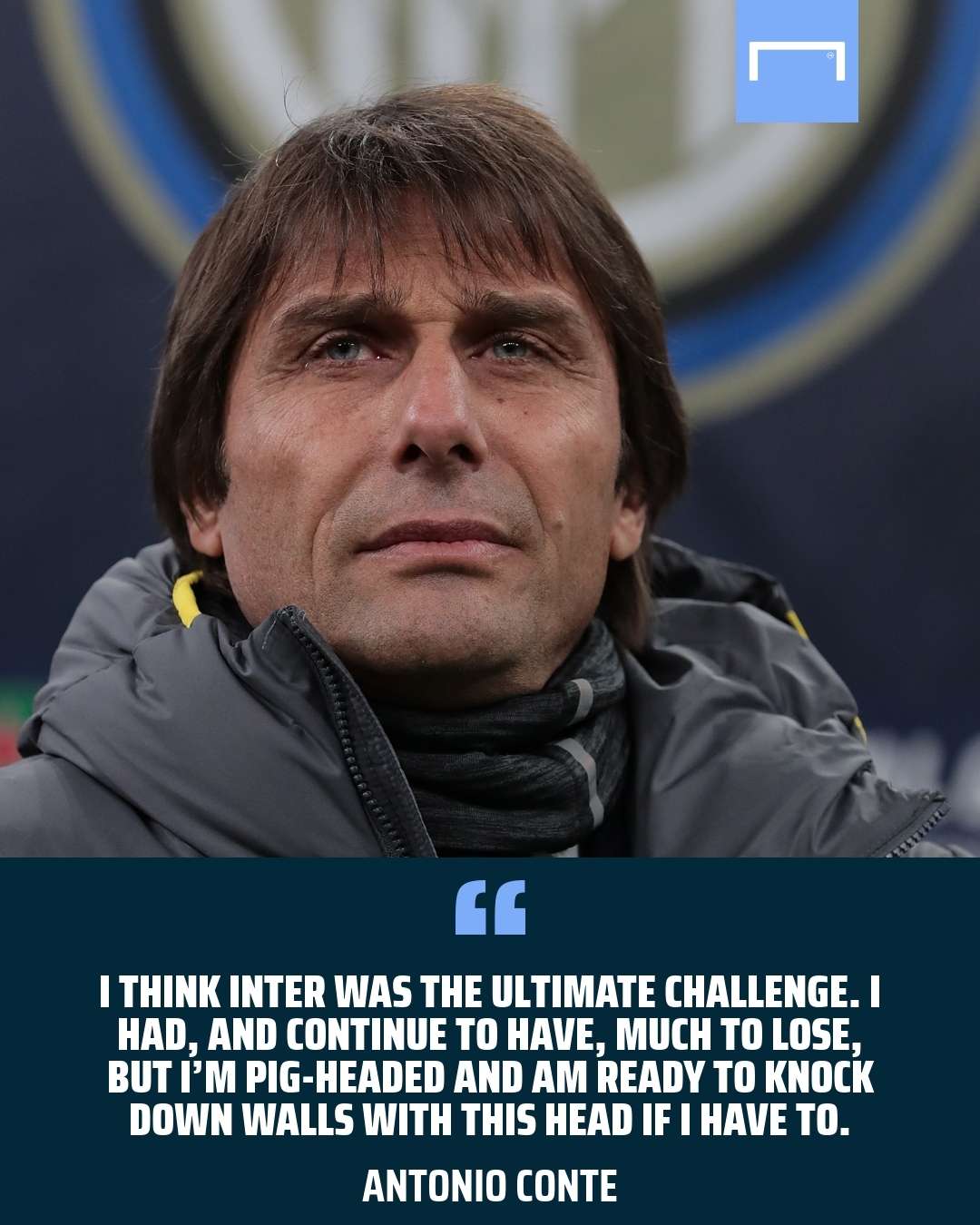 Getty/Goal
Getty/Goal
Jose Mourinho, of course, shares a similar view of the game, but the Portuguese, who led the Nerazzurri to the treble in 2010 before leaving for Real Madrid, did not arrive at Appiano Gentile with the same Bianconero baggage.
Indeed, former Inter CEO Ernesto Paolillo says ex-president Massimo Moratti would not consider hiring Conte as Mourinho's successor all the way back in 2010 because "he didn't want to bring in a Juventino".
That proved a costly error, because while Conte was quickly restoring the Old Lady to her former glory, Inter were slipping into a slow but steady decline. They went through 10 coaches between their last trophy, the 2011 Coppa Italia, and Conte's appointment two years ago.
As a revered man-manager with a proven track record of transforming struggling teams with his passionate yet disciplined approach, Conte should have been welcomed with open arms at Inter. Instead, he was met with distrust – and not just because of his Juve ties.
He was not just a Bianconero, after all, he was also a notoriously combustible character with a history of falling out with his employers, usually over transfer strategy. And it would not be long before he expressed his dissatisfaction with Inter's recruitment.
After his team had very evidently run out of steam in blowing a 2-0 lead in a Champions League group-stage clash with Borussia Dortmund in November 2019, Conte let rip.
“Big mistakes were made in planning this season," he told Sky Sport Italia. “We proved that we can trouble anyone if we are on form, but there are players who have played non-stop. We cannot play in Serie A and the Champions League constantly pushed to the limits.
“I am really p*ssed off, because we cannot do more than this. I am just fed up saying the same thing over and over. I hope a director comes out and says something instead."
It was an extraordinary public tirade against the board – but would prove just the first of many scathing attacks.
Peace talks
This season's Scudetto bid very nearly ended before it began.
After months of tension between Conte and the club, a sit-down involving the disgruntled coach, president Zhang, CEO Beppe Marotta and sporting director Pier Ausilio was arranged at the end of last season.
Inter had just racked up 82 points in finishing second in Serie A, and reached their first major European final since the 2010 Champions League, but Conte looked as likely to walk away as to stay at San Siro.
He was bitterly unhappy with a number of alleged leaks coming from within the club, chief among them a report that a threatening letter containing a bullet had been sent to his home.
He also accused certain figures of failing to protect the players from criticism before then jumping on the bandwagon when the team made it all the way to last season's Europa League final.
Zhang, then, had a tough task on his hands to mend some of the bridges that Conte had burned, but the Chinese masterfully managed what were essentially peace talks, reminding everyone involved that they were all on the same side.
However, Conte was already inclined to put the past behind them having been overwhelmed by the volume and sincerity of the messages of support he received from his players and staff before the meeting. All and sundry wanted him to finish what he had started at Inter.
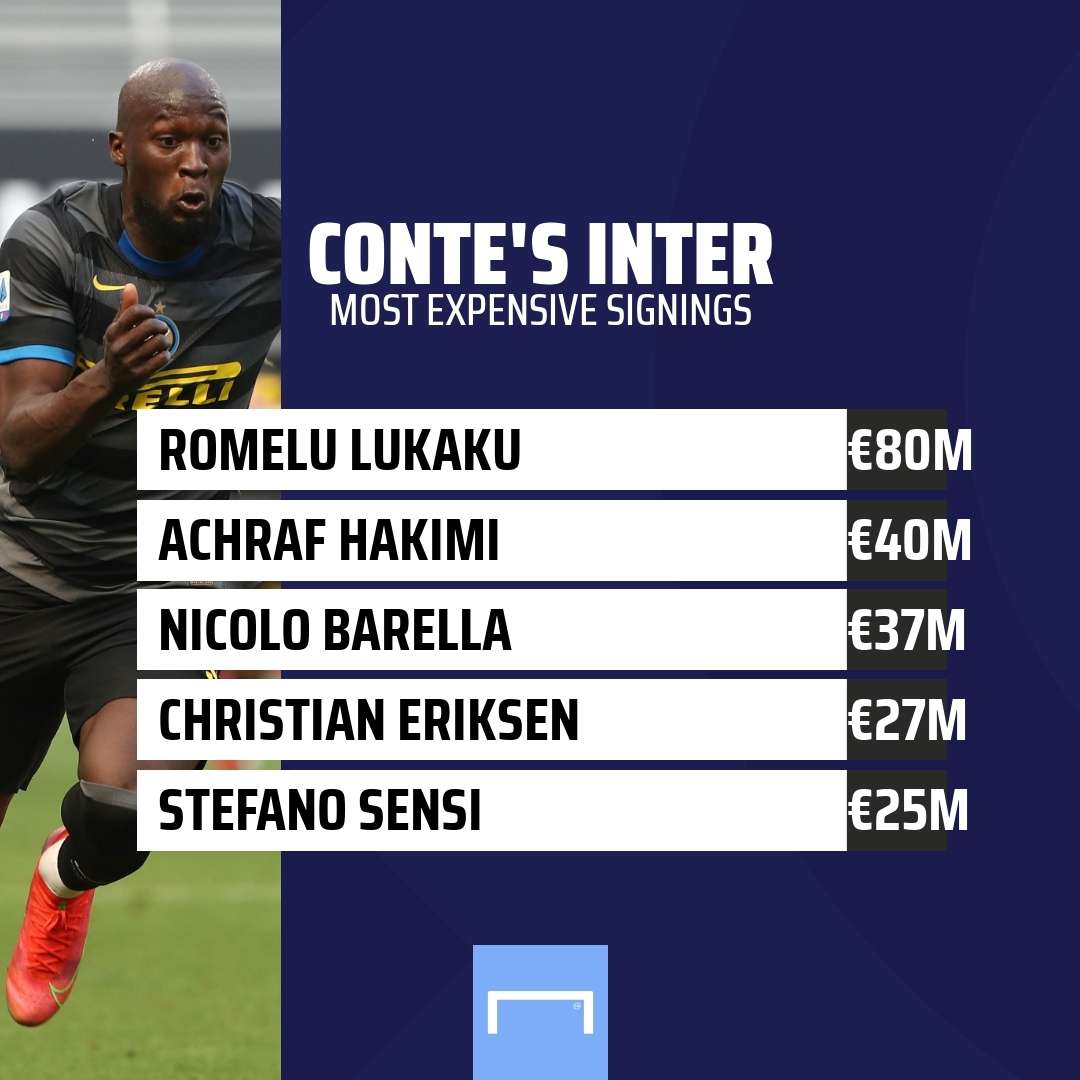 Getty/Goal
Getty/Goal
Of course, it helped that Zhang promised Conte a greater say in the club's transfer strategy, which resulted in the arrival of several experienced players that the Italian believed had a winning mentality. For example, Inter's decision to abandon their pursuit of Sandro Tonali and instead sign Arturo Vidal certainly had Conte's fingerprints all over it.
It was clear that he wanted to win right away – rather than build for the future. Of course, that meant that if Inter failed to deliver a trophy, Conte would have nobody to blame but himself.
After all, the club had broken their transfer record to sign Romelu Lukaku for him in 2019, and also brought in Achraf Hakimi for €40 million (£35m/$48m) before the start of the current campaign.
So, another group-stage elimination in the Champions League only heightened the tension at Inter last December, as Conte's dismal record in continental competition one again came under intense scrutiny.
Familiar failings were brought up. It was argued that he was tactically inflexible, too attached to a 3-5-2 formation that was ineffective in Europe, and that his high-energy style of play was utterly incompatible with the rigours of challenging on two fronts.
However, as the storm clouds gathered over San Siro, there was one significant silver lining. Inter had not just failed to qualify for the Champions League knockout stages, they has also missed out on the Europa League by finishing bottom of their group.
Even accounting for the Coppa Italia – and Inter did reach the semi-finals this season – Conte was essentially free from Christmas to concentrate primarily on Serie A.
Of course, Conte being Conte, he still wanted to strengthen his squad in January, but Inter's owners, Suning, had begun to feel the devastating effects of the economic crisis caused by Covid-19.
"It's pointless to hide it. We had a project but it stopped in August," Conte told Rai Sport after the winter window slammed shut without the Nerazzurri having spent a cent.
However, amid this climate of chaos and uncertainty, Conte excelled, fostering a remarkable sense of team spirit that would propel Inter to the title.
Method to the madness
There is nothing particularly revolutionary about Conte's approach, which is greatly influenced by the Italian coaching icon Giovanni Trapattoni.
He has often stated "one achieves success with method and discipline", and those that do not follow his orders suffer the consequences.
On the field, his five-second rule means that any player that loses possession must go hell for leather to regain it for five seconds before dropping back into position.
However, while he demands his players fight for every ball, he fines anyone who gets himself sent off. It is no coincidence that Inter have picked up fewer yellow cards than any other Serie A side this season. Inter's players must always play on the edge, but never step over it.
This culture of discipline extends far beyond the field, though. The squad are expected to do everything within their power to remain in peak physical condition.
Each and every single player is on a personalised dietary plan, while Lukaku has spoken several times of the many ways in which he has benefited from the club's strict fitness programmes.
Of course, with Conte, the mind is as important as the body. A graduate of the Italian football federation's coaching school at Coverciano, he believes that a player needs to study as hard as he trains.
As well as watching video analysis as a group, each and every player is given meticulous scouting reports of their direct opponents.
Again, many coaches employ similarly meticulous methods, but what is remarkable about Conte is the way in which he has managed to convince each member of the squad to buy into his.
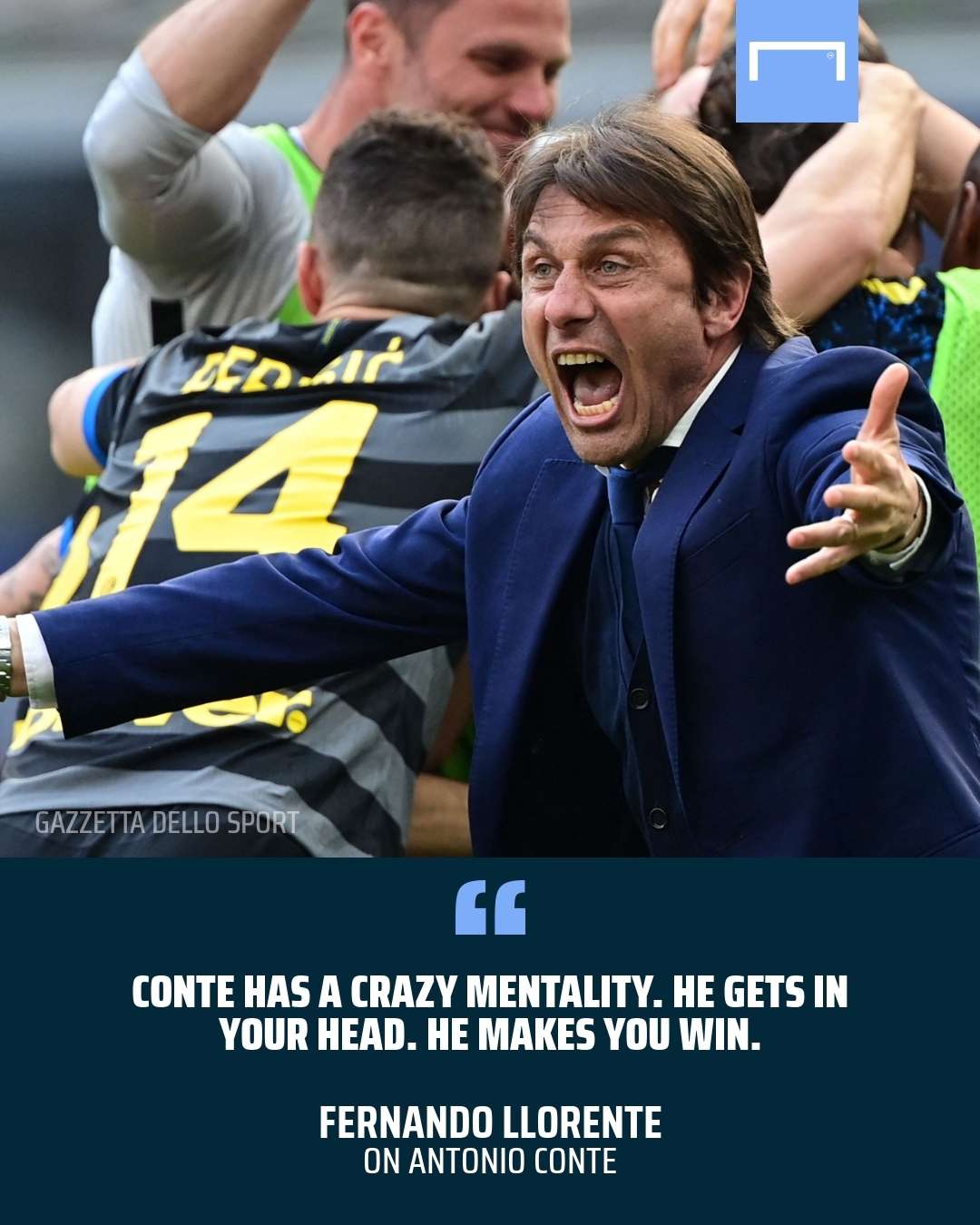 Getty/Goal
Getty/Goal
He has publicly criticised certain players, most bizarrely asking during his Dortmund rant if he was supposed to rely on Nicolo Barella in every game, given the midfielder - one of his best signings - had never won anything at Cagliari.
And yet Barella has benefited enormously from playing under Conte, revealing that the mental side of his game has improved immeasurably from working with the 51-year-old.
Perhaps we should not be surprised. Former charge Fernando Llorente told the Gazzetta dello Sport that he knew Inter would end Juve's domination of Serie A because "Conte has a crazy mentality. He gets in your head."
How else to explain the fact that the Inter squad turned up to train after their game against Cagliari despite being given time off? "That says a lot about this group," Conte quite correctly pointed out, but it is also a credit to his powers of motivation. And persuasion.
Former Real Madrid full-back Hakimi was wanted by several other top European clubs after a hugely successful loan spell at Dortmund, but says he joined Inter because of Conte.
Milan Skriniar struggled for a long time to adapt to Conte's preferred 3-5-2 formation, but is now a far more rounded centre-half, while Christian Eriksen has gone from outcast to key player in six months by finally getting to grips with his manager's demands.
“Things changed when I had more time to work with him, and also I needed him to realise there is attacking and defending in football," Conte said of the Denmark midfielder. "He took a while to adapt to a very tactical style of football that we have in Italy.
“We tried in every way to get him settled and tried various roles. He is becoming more aggressive and showing more intensity, which certainly benefited the whole team.”
And that is the key here: every player at Inter has been working for the good of the group. There has been no sulking, no feeling sorry for themselves whenever they fell out of favour.
When Marcelo Brozovic was caught drink-driving last summer, he did not just lose his licence, he was also fined €100,000 (£86,000/$120,000) by Inter. He, however, accepted his punishment and quickly set about making himself utterly integral to Conte's plans.
Now, no player covers more ground in Serie A on a weekly basis than the Croat: an average of 11.9 kilometres per game, to be precise. Inter, unsurprisingly, top the overall team rankings.
'The Messi of coaches'
The Nerazzurri have been accused of being defensive, on relying too much on the counterattack, and it is true that they have made more fast breaks this season than any other side in Europe's 'Big Five' leagues.
However, while one can question the aesthetic beauty of their play, nobody could argue that they have not earned their Scudetto success.
They are the hardest-working side in Serie A. They never stop running, or fighting, as underlined by the fact that no other team in Italy's top flight has gained more points from losing positions (16) this season.
Having a week's rest has obviously been crucial in that regard. As Conte effectively admitted, it has allowed him to pick nearly the same line-up for every game since the turn of the year.
“I think every team needs an identity and you can only have that if you focus on a specific system," he argued. "I find it easier for players to recognise themselves in a system if it has only minor adjustments from game to game."
The results speak for themselves: 11 consecutive wins between the end of January and the middle of April effectively sealed the Scudetto. With more time to work on the training ground between matches, he has managed to shore up the defence, with 10 of Inter's 13 clean sheets this season arriving since the turn of the year.
The first shutout of 2021 came in a 2-0 win over Juventus at San Siro. Both the coach and his players have admitted it was the turning point of the entire campaign, the moment in which they realised they could dethrone the champions.
The net result was the Nerazzurri romping to victory in the title race thanks to the solidity of Skriniar, Stefan de Vrij and Alessandro Bastoni, the industry and innovation of Barella, Brozovic and Eriksen, and the prolific partnership of Lautaro Martinez and Lukaku.
This victory, though, does not just belong to the first-team regulars; it belongs to the entire squad. Matteo Darmian's contribution is a perfect case in point.
The wing-back is by no means a guaranteed starter, but he has scored two late winning goals in recent weeks, sparking wild celebrations among the players and the coaching staff.
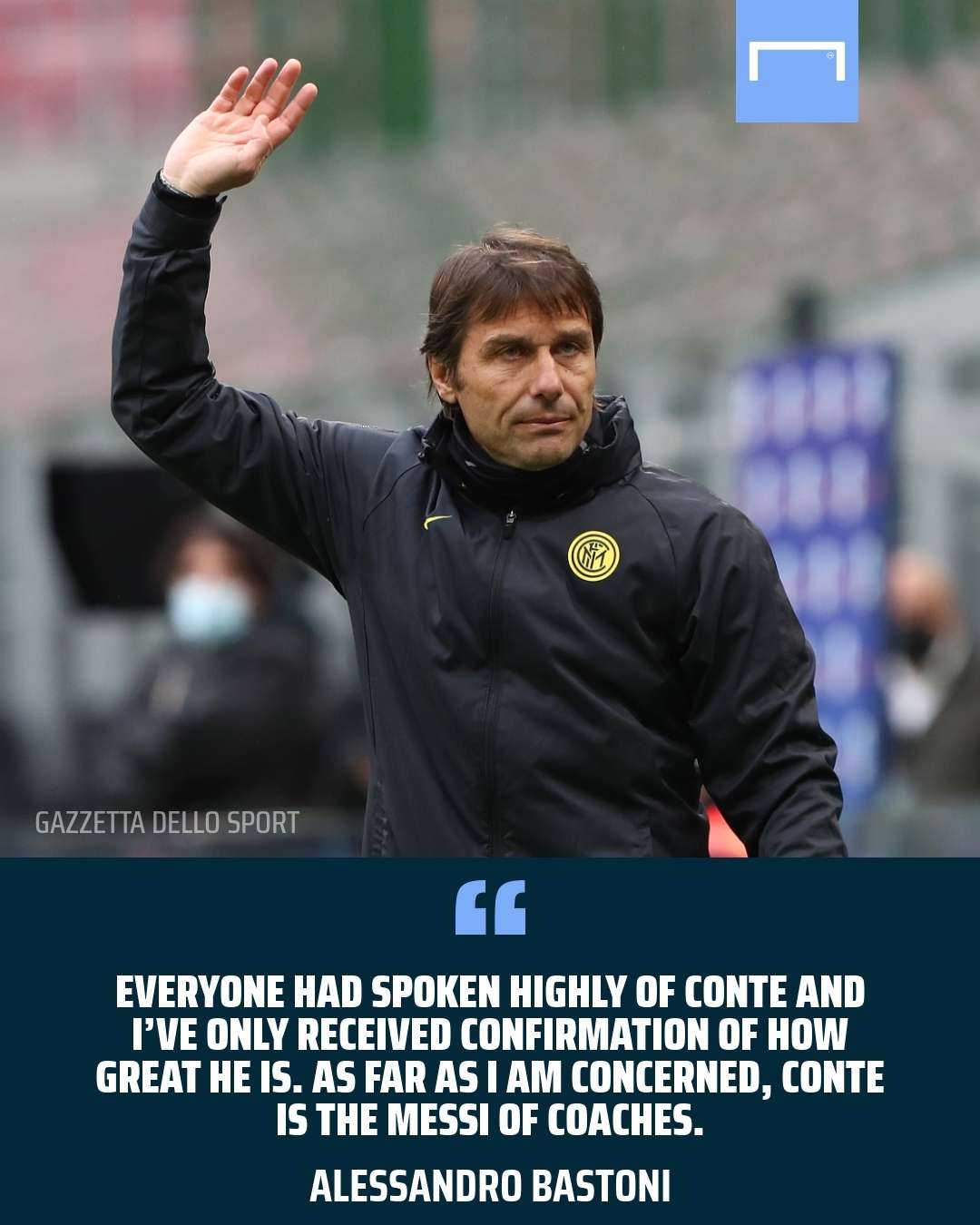 Getty/Goal
Getty/Goal
“We all feel part of the group, we all feel important, and we know that we’re all going to be ready when called upon," Darmian explained. “Everyone knows our coach is so passionate, he puts his heart and soul into it."
And the players have responded in kind. They have not just accepted his methods, they have embraced them, and the man himself. Bastoni calls Conte "the Messi of coaches", while Skriniar says he's like their "big brother".
Conte has not been easy on them, and has always asked a lot of them.
The players were instructed to be as cautious as possible when it came to interacting with other people during the height of the coronavirus pandemic, while he has even gone so far as to offer sex tips in the name of energy preservation.
"Short spells, with the minimum of effort and use positions where they are under their partners,” the Inter boss told L'Equipe. "And preferably with their wives, because then you don't have to put in an exceptional performance!"
But as that quotation underlines, he has expertly managed to strike a balance between hard work and levity, as he argues himself. He has placed his trust in the players' common sense and been rewarded with their respect.
He did away with pre-match ritiri (retreats) as he felt they would be better served by sleeping at home before games and despite all the video analysis, he tries to avoid overloading them with instructions.
He freely admits he deserves his reputation as a "hammer", but that was precisely what was required to transform this underperforming club into a winning machine.
Conte may not be for everyone, but he was the right coach at the right time. As Skriniar told Tuttosport, "This is no longer Pazza Inter. This is Conte's Inter."
And his Scudetto.
